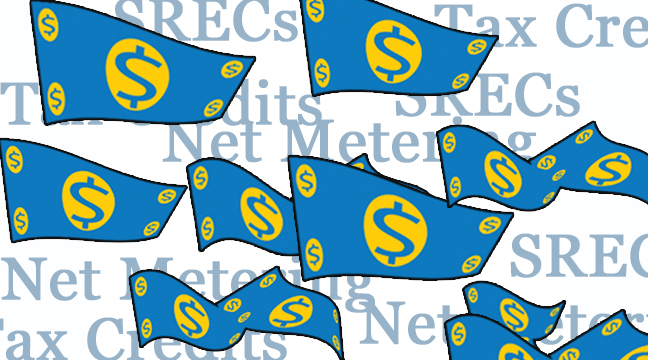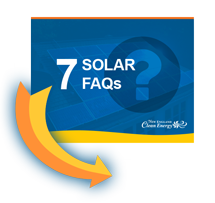What do you get when you mix months of uncertainty and doubt with a day of positive news? Lots more uncertainty and doubt, with some confusion thrown in.
That’s the state of solar in Massachusetts. After months – no, more than a year – of legislative haggling over whether or not to increase the Net Metering cap, a bill was finally passed last month that did raise the cap, and re-affirmed that the cap doesn’t even apply to solar energy systems of up to 10 kilowatts (kW).*
The popular SRECs (Solar Renewable Energy Certificate) got caught up in the hysteria, too. SREC II – the second incarnation of a program that rewards solar owners for producing green energy – was maxing out, creating a massive hole in the Massachusetts solar incentive package. Again, a happy ending.* In April, the state Department of Energy Resources issued an emergency regulation extending SREC II until a replacement program is identified. There is no cap for systems under 25 kW and SRECs are guaranteed until 2027, maintaining the 10 years of participation for solar owners that the program has had from the start.
This is all great news, so what’s the problem? Sadly, the positive news is playing catch-up to the months of waiting and wondering. If you blinked on the days the good news was announced, you may not even know that solar in the Commonwealth is as strong as ever.*
But trust me, it is: Homeowners and small businesses installing solar energy systems benefit from full Net Metering credits and 10 years of SREC income. That’s on top of the 30% federal tax credit and a $1,000 state tax credit. The economics of solar remain strong, with systems paying themselves off in roughly 7-10 years, and providing a 25-year Return on Investment of 185-250%. (What other home improvement does that?) In short, Massachusetts remains in the lead as the best place to buy solar in the region.
Hopefully this good news will spread as widely as the bad news did. But clearly, it’s going to take some time.
*All the references to good news refer to solar for homeowners and small business owners. Other segments of the solar-loving community including community solar, low-income customers and large system developers are not faring as well under current state policies.
If you liked this article, you might also enjoy:
- Net Metering is Not a Subsidy
- Can You Use the 30% Federal Tax Credit for Solar?
- Ironically, Consumers Losing as Net Metering Hits the Big Time



 Download our 7 FAQs
Download our 7 FAQs


2 Responses to “Massachusetts Solar Prices as Good as Ever”
Jan 16, 2017: I am getting confusing info from different solar installers. Is there a cap on how large a residential solar system I can install on my home in Massachusetts?
Hi Paul – State programs related to solar are changing regularly these days. It’s easier if you give us a call at 978-567-6527 and speak to one of our Solar Consultants, who can answer your question as it relates to your specific situation.
The comments are closed.